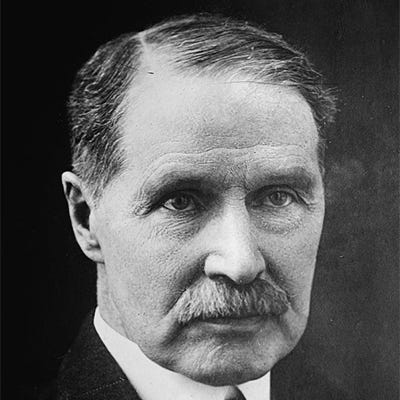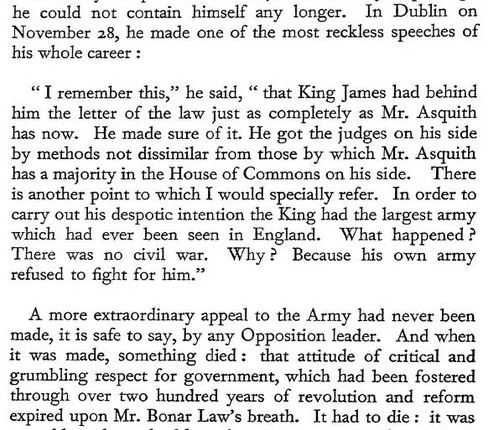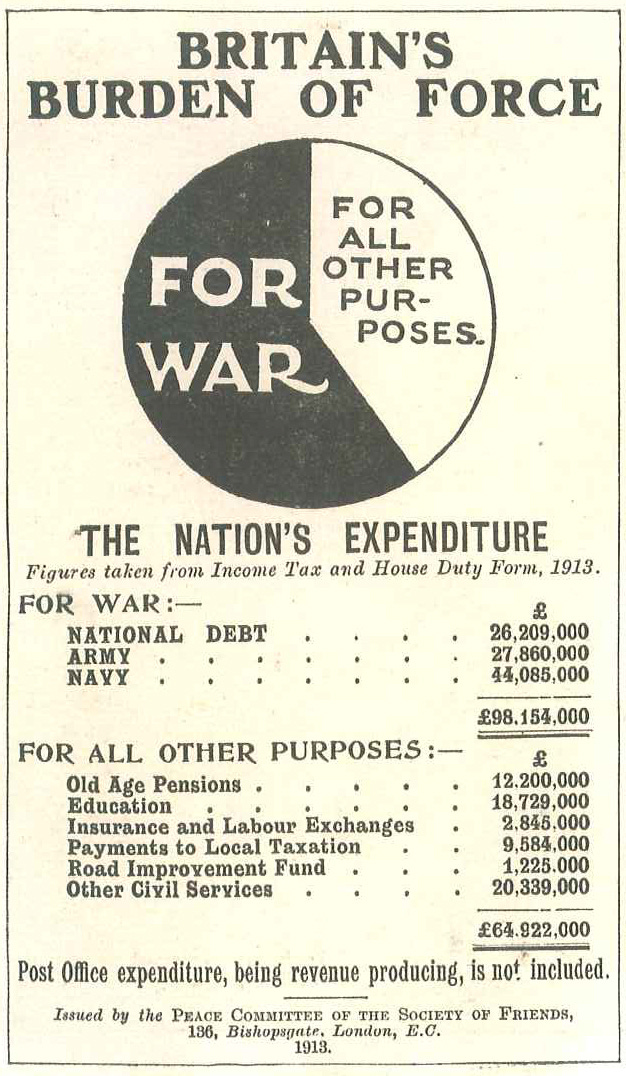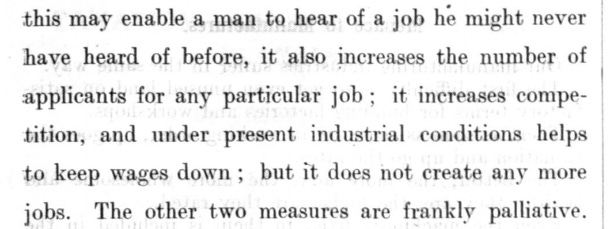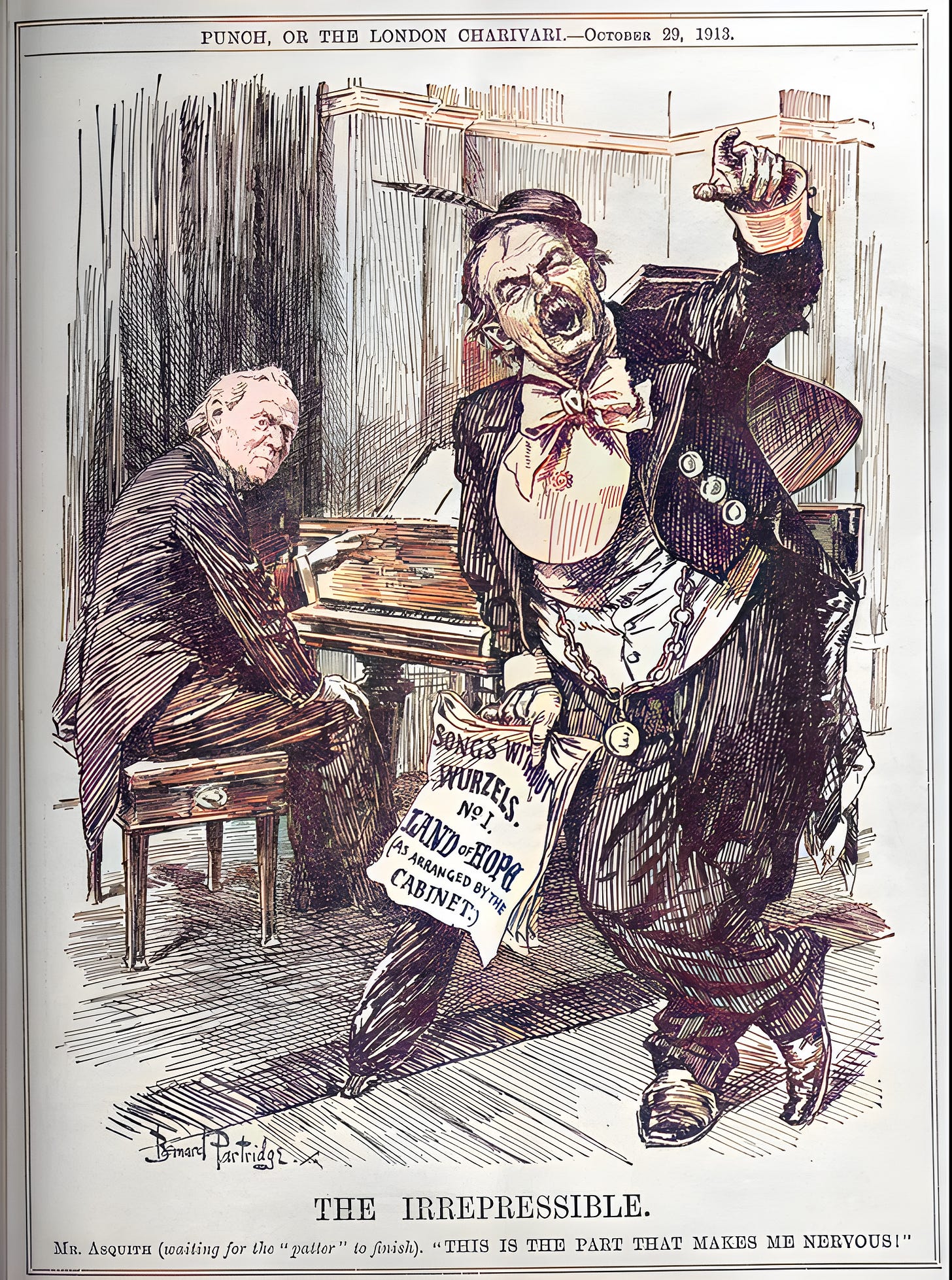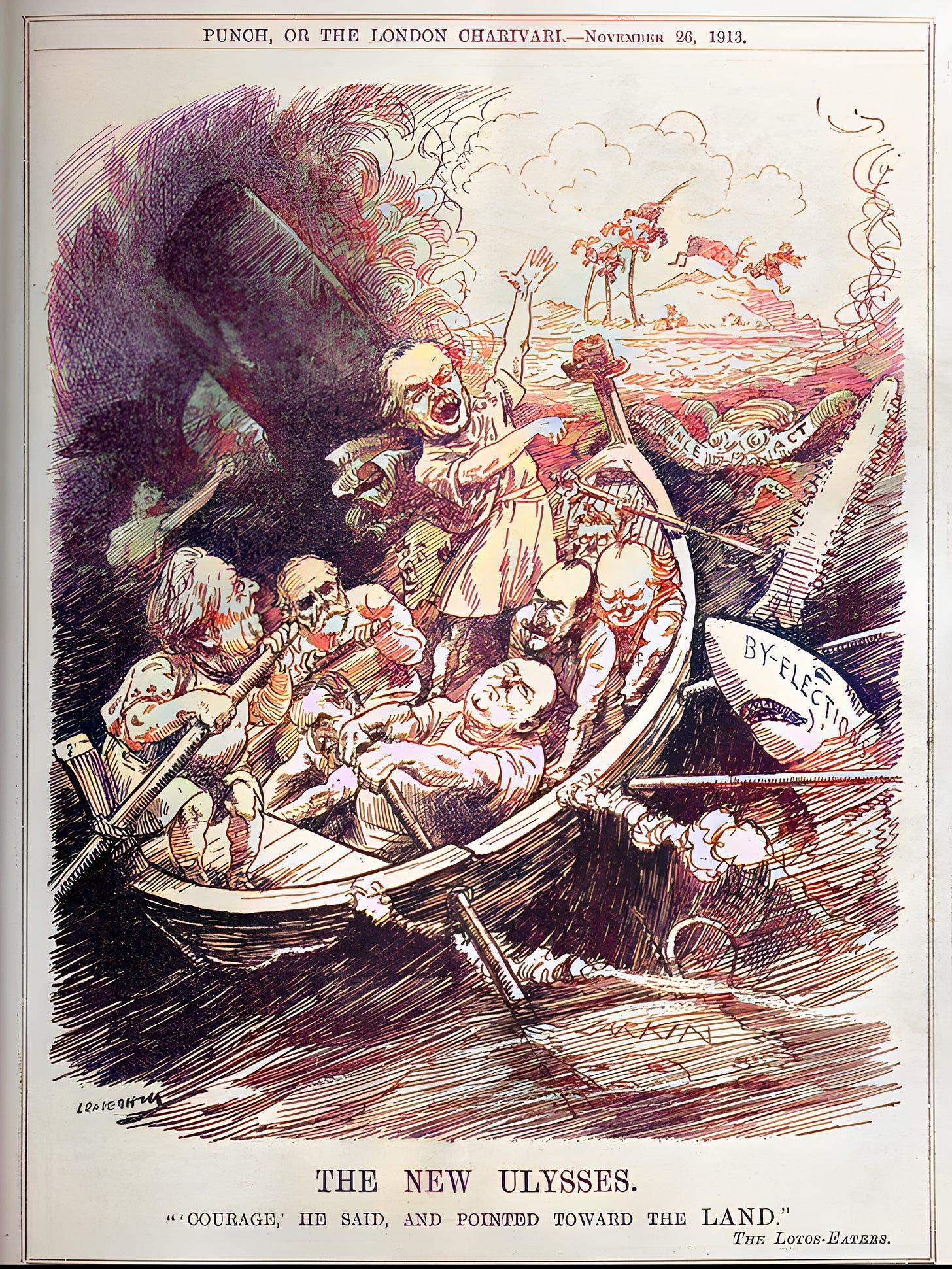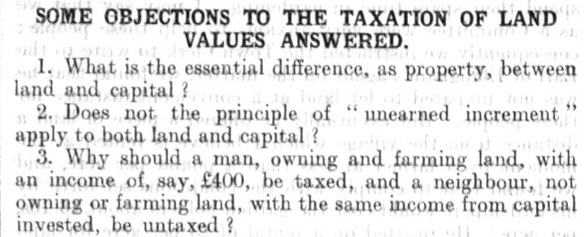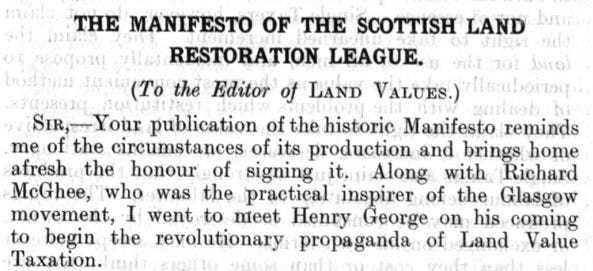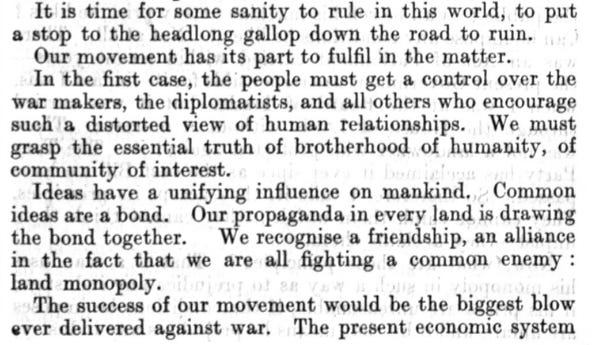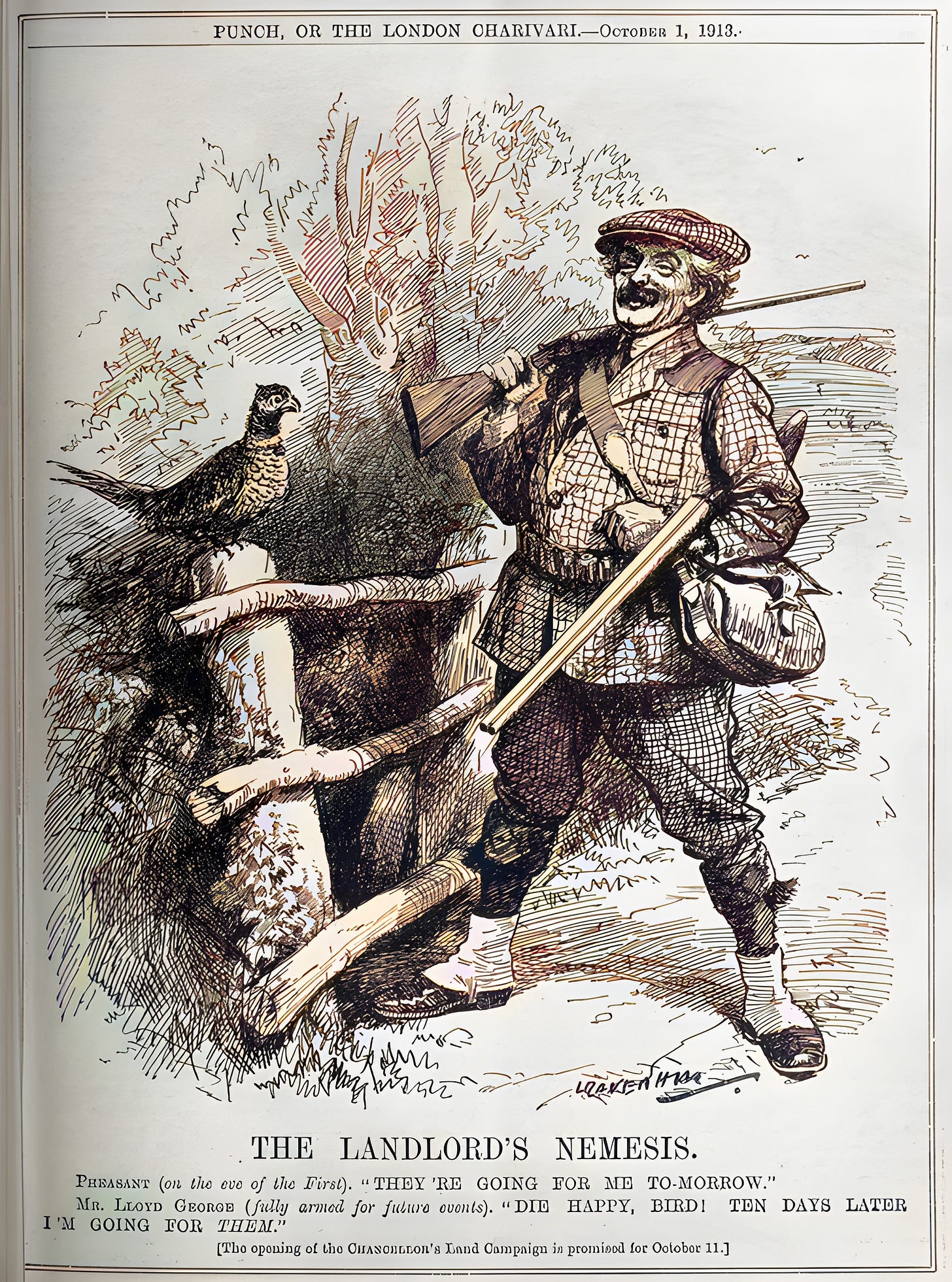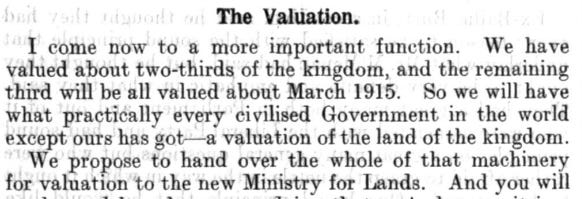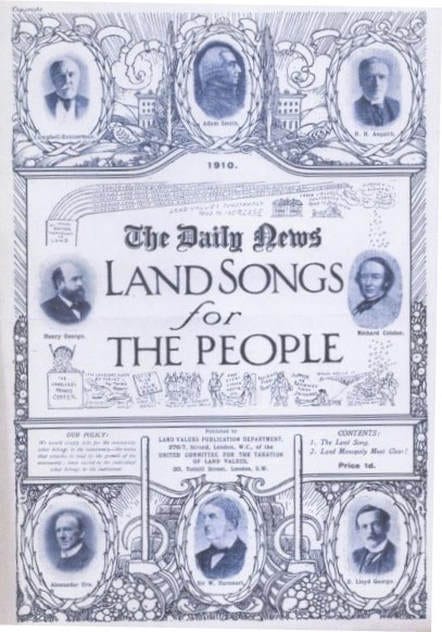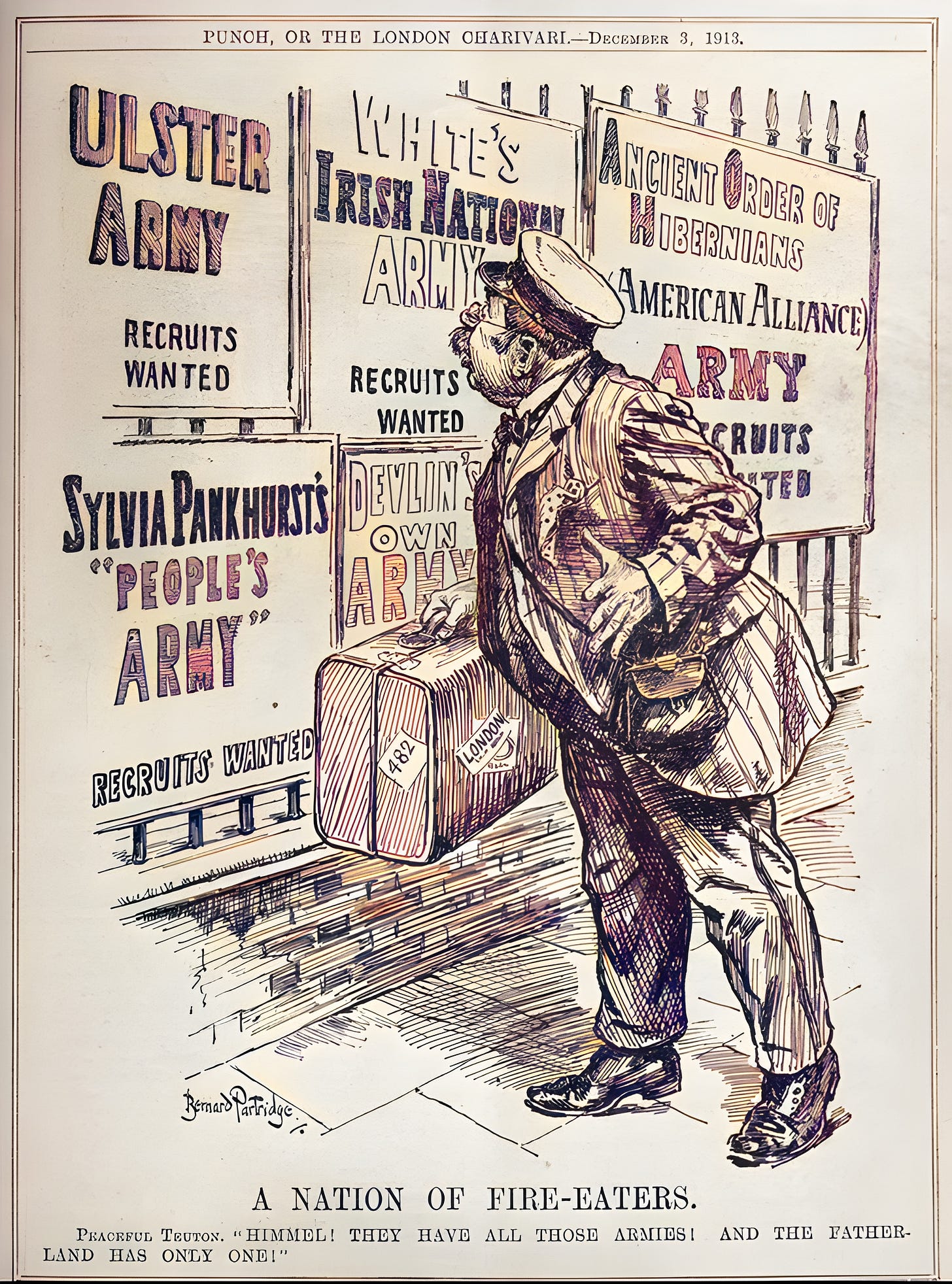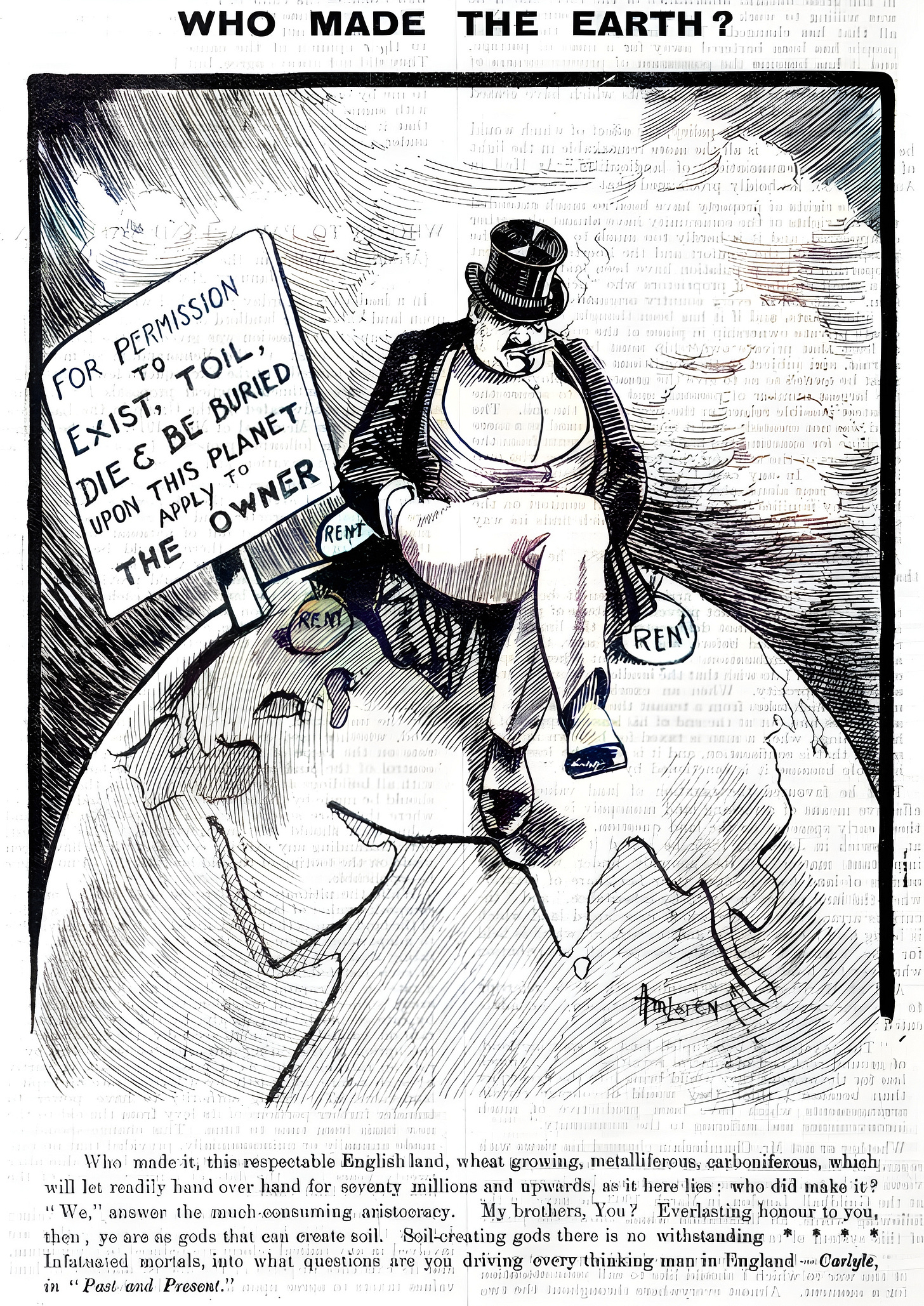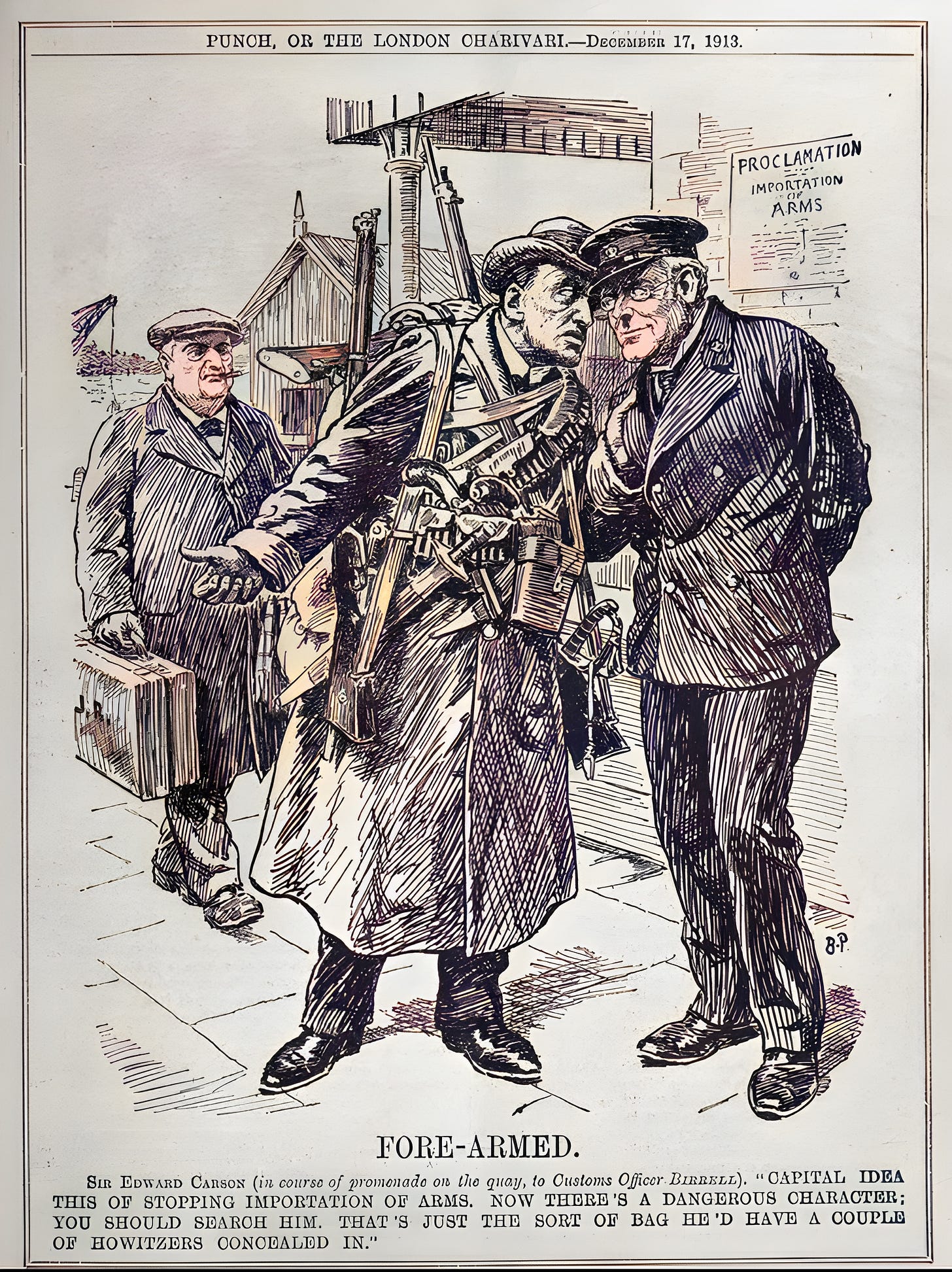The Single Tax v World War One (18) October-December 1913
“The success of our movement would be the biggest blow ever delivered against war”
“A more extraordinary appeal to the Army had never been made by any Opposition leader.”
Historian George Dangerfield on Andrew Bonar Law, leader of the Conservative opposition, flirting with civil war:
- George Dangerfield, The Strange Death of Liberal England (1935)
The 1909 budget and the destruction of the unwritten constitution
“These events are so familiar to historians of the period that it is easy to overlook their enormity. In 1909 the House of Lords voted, by a huge majority, to overturn the Commons monopoly of supply that had remained unchallenged since the 17th century.
Two successive kings vetoed the proposals of their Liberal governments, which had to be elected three times in a row in order to carry out their programme. The Curragh officers dictated terms to the elected government, restricting its right to send troops to the aid of the civil power.
How did so many Unionists persuade themselves that they had the right to stage a coup d'état against the elected government?”
- Iain McLean, The 1909 budget and the destruction of the unwritten constitution (2009)
Radical Land Robbery
The new land campaign was disorganised. The Land Enquiry published the Rural Report, but the Urban Report was still in progress. The Enquiry Committee was rent by disagreement and Lloyd George hestitated to offer clear policy direction. The government was relucant to align with the Single Tax position - the term itself became contentious and a paragraph at the end of the Rural Report disavowed it. The cabinet, including Grey, was not enthusiastic. With sad irony Lloyd George gained pyrric support from Churchill - remember 1909, when they had together as crusaders traded more Dreadnoughts for the chance to introduce Single Tax principles into the Budget? Now they were on opposite sides, guns and butter. Churchill was now at the Admiralty and ceaselessly seeking increaded navy funding.
“I have made a bargain with Winston. He has agreed to support my land policy with which he is not in sympathy and I have agreed to give him more money for the Navy. You may call this a bribe, but I have nothing to gain personally. I am only endeavouring to carry out my scheme of social reform which I believe is for the good of the people.”
- David Lloyd George, quoted in David and Winston, How a friendship changed History by Robert Lloyd George (2005)
Although the new land campaign did not aim at immediate legislation, it was agreed that it would be central to the next general election campaign in 1915. But, as we shall see, there was also pressure to act sooner, the campaign had already been put off a year due to the Balkan war… The great valuation was now 60% complete. Specially trained educators were soon to be sent out. Land Taxers were as ready as ever - one junior minister, Charles Masterman, who had worked on the 1909 Budget, said “It will be good to get back into real things again”. He wanted the Land League to “spread the ‘virus’ in every village … and stir things a bit before we die!”
Meanwhile, the Conservative opposition prepared for its campaign against “Home Rule, Socialism, and Radical Land Robbery.”
“The lull before the opening of the Land Campaign”
“All are palliatives, with the exception only of the Finance Act.”
“There is not a word of enquiry as to why men are unable to give their children enough food”
“Poor men’s children are fed and the expense of other poor men”
“Coal miners have secured an Eight Hours Act and a Minimum Wage. As a result the price of coal has gone up enormously.”
“Let there be no mistake, the miner’s Minimum Wage is being paid for the most part by other workers.”
“But it is obviously impossible permanently to raise wages until the question of unemployment is dealt with.”
Accross the prairies moving East
The beginning, 1884
(Hodge means agricultural worker)
Lloyd George, back to the root cause
Edmonton making LVT work
One of the best explanations of this oft raised issue
The formation of land value in Canada
“A manifesto of the most rousing power was needed on the instant, and must then and there be produced”
“The fervour of the Cause was upon us, and we believed that land restoration was at hand.”
“Perhaps our zeal was without fitting discretion, but LAND VALUES maintains the intelligent patience of the cause!”
Karl Marx, Single Taxer
“The success of our movement would be the biggest blow ever delivered against war”
“Ideas have a unifying influence on mankind. Common ideas are a bond. Our propaganda in every land is drawing the bond together.”
“A poverty striken mob is the greatest danger to a nation’s stability. There is an element of fluidity in it, which renders it capable of being stampeded in any direction.”
“Another danger in our economic system is the small leisured class, from whom our soldiers and diplomatists are drawn. Their traditions are warlike, their hopes of honour rest in war.”
October 1913, the new Liberal Land Campaign
This time, the Lords would not be able to obstruct legislation. The landowning class, highly coincident with the ruling class, is directly threatened.
Alexander Ure - out of the fight
Ure has featured several times in this series. We have seen that he was regarded by the opposition as particularly radical. His prominence in the land campaign is indicated by his portrait’s inclusion on the front sheet of this contemporary song book (bottom left):
Of ‘The Land Song’, the Liberator Song Book briefly records that its origins lay in the American land tax movement. ‘Liberals adopted the song in the two general elections of 1910, following the rejection by the House of Lords of Lloyd George’s 1909 People’s Budget, which proposed a tax on land.’ I sought to discover the song’s inception, the extent of its popularity among Lloyd George-era Liberal land campaigners, and the reasons for its restitution by Liberal radicals two generations later in part as a statement of political lineage. What I have failed to understand is why such a resonant anthem, which evokes strong identification and loyalty among those who still sing it, has such an inconspicuous place in the winder pantheon of political song.
I interviewed Michael Foot back in November 1990 about 'The Land Song':
‘I was brought up in a Liberal household down in Cornwall and Plymouth. My father was a Liberal Member of Parliament, a radical Liberal, and he taught me the song. Way back in the 1920s, I heard the song being sung. It wasn’t only the Liberals who sang it – it was sung by many others as well. I’m not quite sure who invented it. Lloyd George adopted it when he carried out his land campaign, and his attack on the landlords in 1909, 1910, and all the associated People’s Budget. And ‘The Land Song’ was the one which really seemed to strike terror into the hearts and minds of the landlords – as it should because it was directed at them.’
- Andrew Whitehead, The Land Song
Great Britain seven months before the outbreak of war.
“forced by economic conditions to leave school”
The strawberry leaf is a symbol of rank.
Land Values’ emotional rollercoaster continues: “chagrin and disappointment”
“not the freedom of Liberalism, but the sordid machinery of State charity”
“every penny of it unearned increment”
Lewis Berens of Land Values
“A great wrong always dies hard”
In 1886 Henry George ran for Mayor of New York. It was the first great Single Tax crisis. The election of a Single Tax Mayor 25 years later is not minor news.





